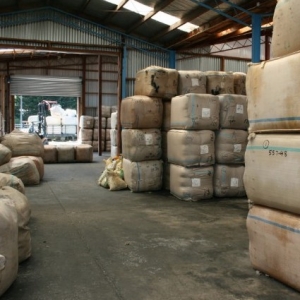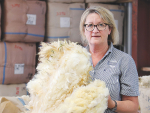The weighted indicator for the main trading currencies was 0.71% lower than the last sales on February 21, adding impetus to local price levels.
Dawson says a small offering of Mid Micron wool 25 to 29 microns were nominally 2% dearer.
Fine Crossbred Fleece 32 to 35 micron were firm to 3% stronger with the Second Shears firm to 1% dearer.
Good style coarse carpet fleece were 1.5 to 2.5% stronger with the poorer styles 2.5 to 4% dearer. Longer coarse shears increased 1.5 to 4% with the shorter types firm to 2.5% dearer.
First Lambs Fleece 31 micron and finer were 1 to 3% dearer with coarser types 3% stronger.
Combing oddments lifted by 3 to 4% with shorter oddments firm to 2% dearer.
Competition was good among China, India and Australasia principals, supported by Middle East, Western Europe and the United Kingdom.
The next sale March 7 comprises about 16,000 bales from the North Island and 8800 bales from the South Island.



















